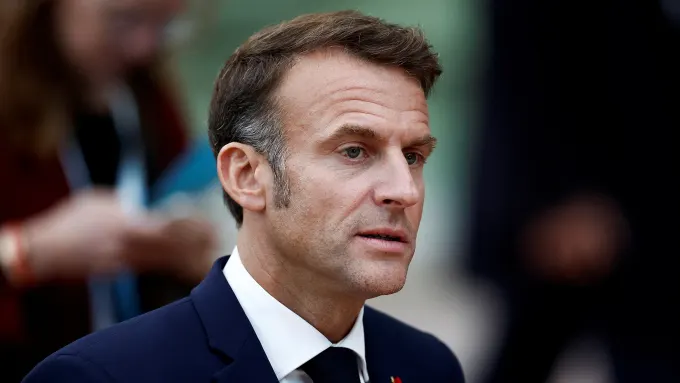French President Emmanuel Macron has firmly rejected demands for his resignation following the ousting of Prime Minister Michel Barnier in a no-confidence vote. In a defiant televised address on Thursday, Macron stated, “The mandate you democratically gave me is a five-year mandate, and I will carry it out fully, until the end.”
The president promised to appoint a new prime minister within days, seeking to restore stability in a country grappling with political uncertainty. The no-confidence vote, driven by an unlikely coalition of far-right and left-wing lawmakers, has left Macron’s government in disarray and jeopardized his ability to push forward key policies, including a contentious budget.
Blame on Opponents
Macron accused opposition parties, particularly Marine Le Pen’s far-right National Rally, of fostering chaos for political gain. “The extreme right and the extreme left united together in an anti-Republican front,” he said, criticizing their role in toppling Barnier’s government.
He also claimed that Le Pen’s party is more focused on the 2027 presidential election than on addressing France’s challenges, calling their approach “cynical” and damaging to the nation. “They insulted their own voters and have chosen disorder,” Macron said, urging the National Assembly to prioritize serving the French people.
Challenges Ahead
The path forward is anything but straightforward. Macron’s choice for a new prime minister will require approval from a deeply divided parliament, where opposition factions have already vowed to block his agenda. Marine Le Pen has stated her firm opposition to any left-leaning candidate, reinforcing the difficulties Macron faces in securing consensus.

Adding to the pressure is the urgent need to pass a budget by December 21. Failure to do so could force the government to implement a temporary fiscal continuity law, limiting spending to 2024 levels and potentially undermining France’s economic stability.
Fallout from Barnier’s Resignation
Michel Barnier, who resigned after the no-confidence vote, remains in office as a caretaker until a new government is formed. His defeat marked the first time a French government has fallen to a no-confidence motion since 1962. The proposed financing bill at the heart of the controversy included €60 billion in tax hikes and spending cuts aimed at reducing the budget deficit—a plan that faced fierce opposition for measures like delaying pension increases to match inflation.
Macron’s Next Move
Macron is now tasked with balancing political alliances to avoid further deadlock. Having previously tried to appease both ends of the political spectrum by appointing Barnier, the president may now choose to align more closely with one faction, risking further alienation of the other.
In his address, Macron signaled his determination to move forward, declaring, “From today, it’s a new era.” However, with opposition forces united against him and his authority waning, the second half of his presidency promises to be a turbulent one.


